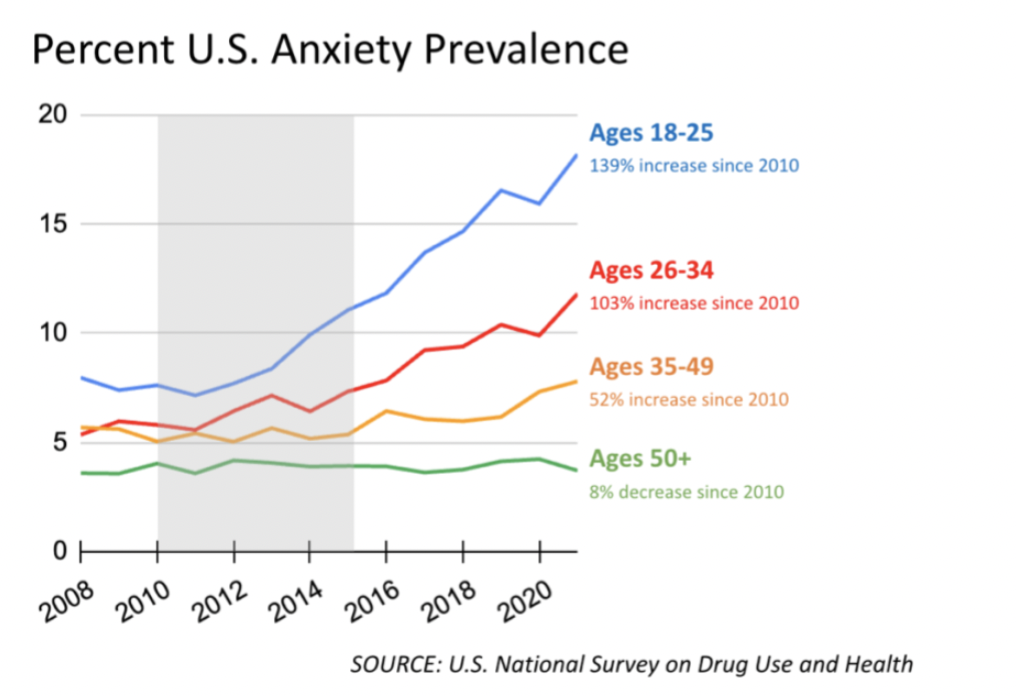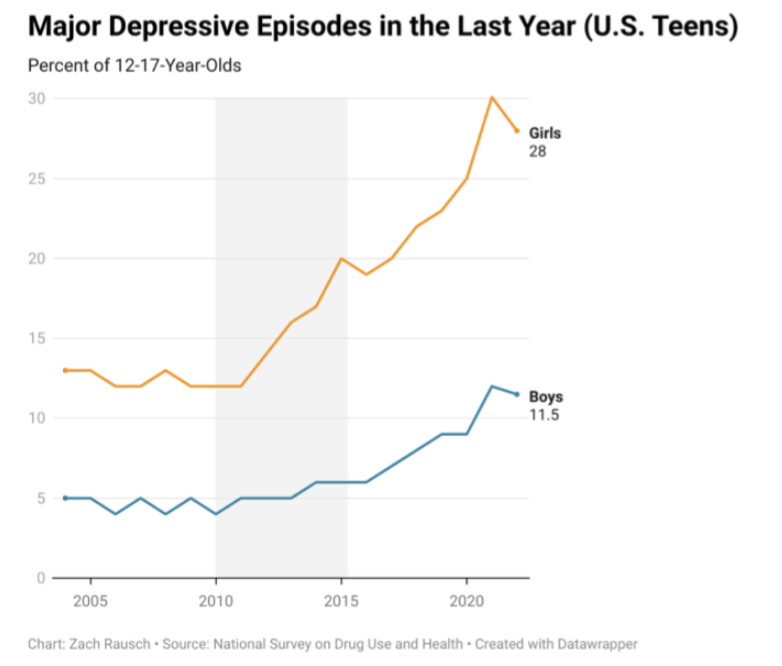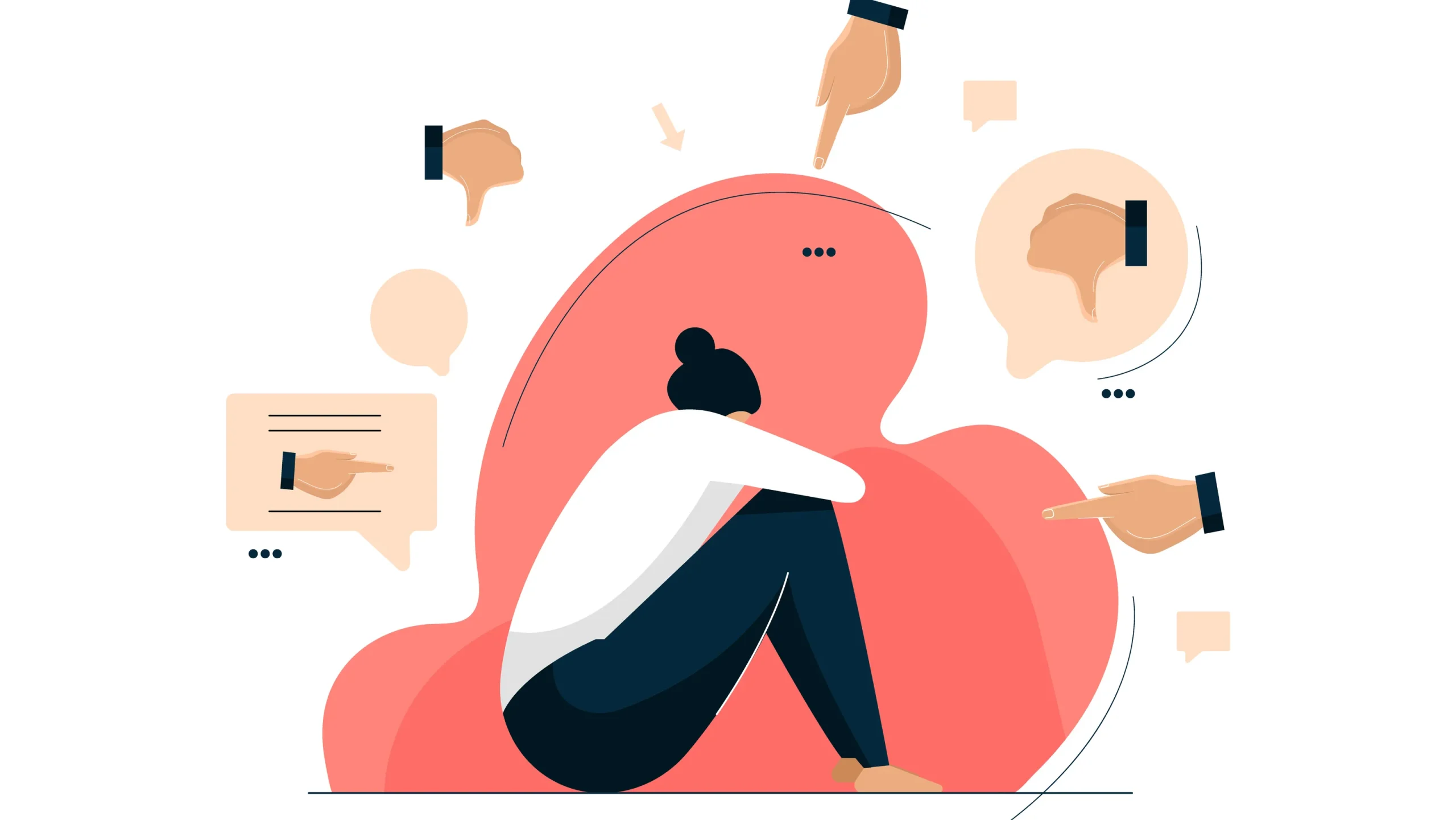One Graph shows it all. Take a look below. If you recall, 2008 was the year the smartphone was released and the advent of social media began to take off. The first generation of Americans who went through puberty with smartphones in their hands became more anxious, depressed, self-harming, and suicidal. We now call that generation Gen Z, in contrast to the millennial generation, which had largely finished puberty when the “great rewiring” began in the early 2010s.
However, I want to stand up for Gen Z here for a moment. They are also the first generation raised by parents on their phones. I suspect that a lot of what you see in the graph below reflect the pain of parent, child disconnection. Imagine all those kids who looked up for eye contact, love, a laugh, play, and saw a parent staring expressionless down into their device. Wide eyed and hopeful for connection, they found disappointment again and again. The precursor to the mirror is the mother’s gaze. We learn who we are, to experience and regulate our emotions, and how to connect through our relationships with our early caregivers. I wonder how much phones ripped this generation of parents away from their natural instincts to connect with their children. The always-on stress of being connected to work, the temptation of social media, texting, emailing, on and on. There’s always a reason to be on a phone if you want. Of course, kids then turn to peers for this connection and validationValidation in CBT involves recognizing and acknowledging one’s feelings or thoughts without judgme... to a disproportionate degree. Addictive technological devices become their source of emotion regulationEmotion regulation refers to the ability to manage and respond to emotions in a healthy way. In CBT,... and social connection.
Parent-child connection during childhood is a cornerstone of adult mental health.

Interestingly, the distribution of trouble was not even between teen boys and girls. The graph below shows the gender differences in the prevalence of Major Depressive Disorder between teen boys and girls spanning from 2008 to 2020.

Social Psychologist and Author, Jonathan Haidt, has spent years collecting data and putting together the scientific picture of what we know about the advent of the smartphone, social media, and mental health. This group of teens is a complete technological experiment happening right before our eyes. Today’s teens are our technological Guinea pigs. We don’t yet have rules or even intuitions about how to care for your mental health in the digital age. So, we have to start searching for wisdom before a collapsed generation is the unnecessary casualty for future progress. In his book, The Anxious Generation, Jonathan spells out 4 must-have rules, corroborated by experts, for parents to hold if they want to keep their kids from becoming one of the statistics above:
1. No smartphones before high school. Parents should delay children’s entry into round-the-clock internet access by giving only basic phones (phones with limited apps and no internet browsing) before ninth grade (roughly age 14).
2. No social media before 16. Let kids get through the most vulnerable period of brain development before connecting them to a firehose of social comparison and algorithmically chosen influencers.
3. Phone-free schools. In all schools from elementary through high school, students should store their phones, smartwatches, and any other personal devices that can send or receive texts in phone lockers or locked pouches during the day. That is the only way to free up their attention for each other and their teachers.
4. Far more unsupervised play and childhood independence. That’s the way children naturally develop social skills, overcome anxiety, and become self-governing young adults.
A note to parents today – put your devices down. There may be a day in the future where your kids are grown and you regret spending their childhood looking at your phone. In their personality and emotions, they will bare the consequences of all the disconnection. If you find yourself unable to, just try for windows of time (between dinner and bedtime or after work hours). Plug it into an outlet away from your main living area or in your bedroom. That, you won’t ever regret.
At Keil Psych Group, we help teens and parents navigate today’s large social experiment of technology and social media. We help families connect. Teens need their devices to connect with friends or they risk social isolation. Parents desire to help their kids grow strong, skilled, and uncompromised. There is often a healthy, middle way when parents and teens collaborate on the common goal of mental health and well-being. Not to mention, this is just one of the many complex issues teens and parents are facing these days.
We help families to hear the concerns and not the rules, to help teens care for themselves and not blindly push back. We like to organize families around love, health, communication, and honoring the individual and the family unit. In our practice, we help parents restore their relationship with their children and reconnect with siblings. A strong family unit is one of the centers of mental health. We think there is a way to keep connected and make healthy choices in an ever more complicated world. If you have any questions or concerns, please don’t hesitate to reach out. We would love the opportunity to help!




